The 49 migrants currently on board two NGO vessels outside Malta were transferred onto AFM vessels and brought to Malta to be redistributed to eight European Union countries.
The announcement that a deal had been brokered between a few EU countries was made by Prime Minister Joseph Muscat this morning.
Addressing a press conference at Castille, Muscat said that the eight countries that will participate in the exercise are Germany, France, Portugal, Ireland, Romania, Luxembourg, the Netherlands and Italy.
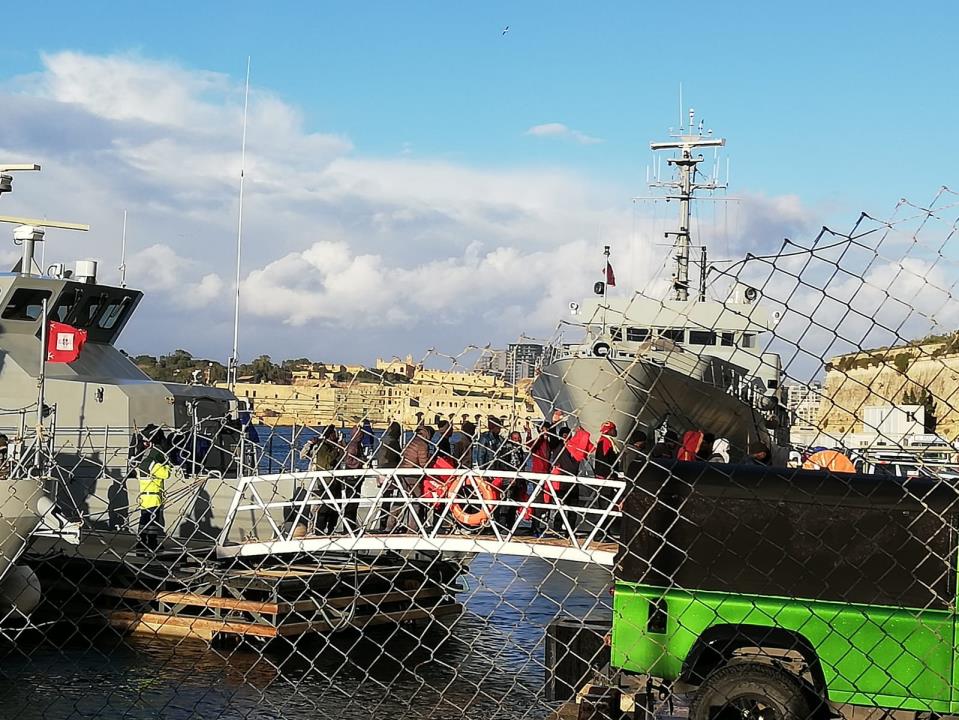
The migrants were transferred onto AFM patrol boats soon after the PM made the announcement and were shipped to Malta, arriving at Haywharf at 4pm. They disembarked witn relief, their smiling faces showing all of their emotions as they stepped on land after many days at sea. One of the migrants formed his hands into the shape of a heart as he disembarked.
The migrants were taken in police buses to the Initial Reception Centre at Marsa.
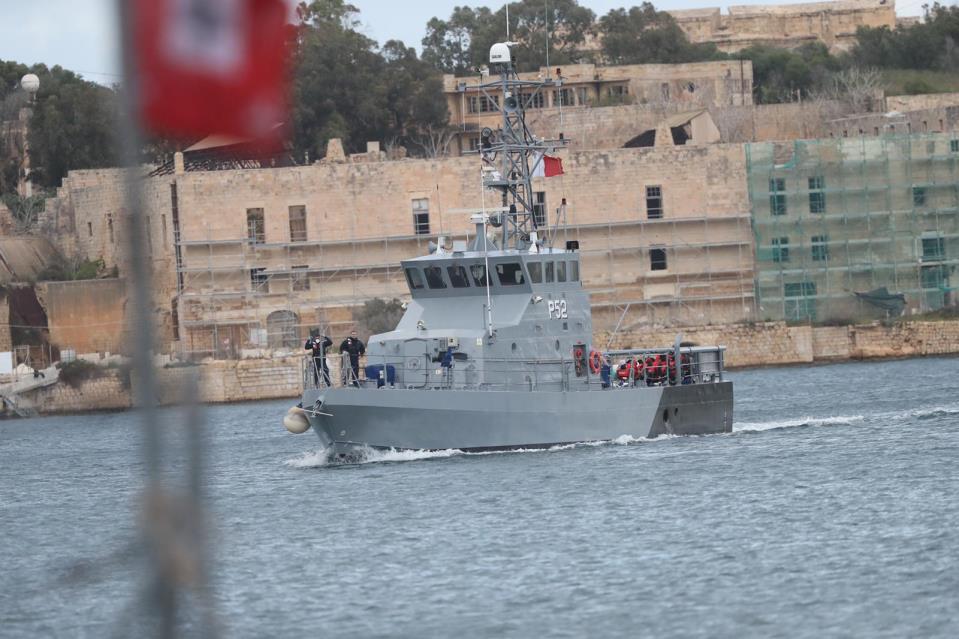
in his morning press conference, Muscat said that another 131 of the 249 migrants who were rescued by Malta between Christmas and the New Year will also be distributed among EU states. The EU will also be sending experts to facilitate an expedient return after due process of a further 44 Bangladeshi nationals.
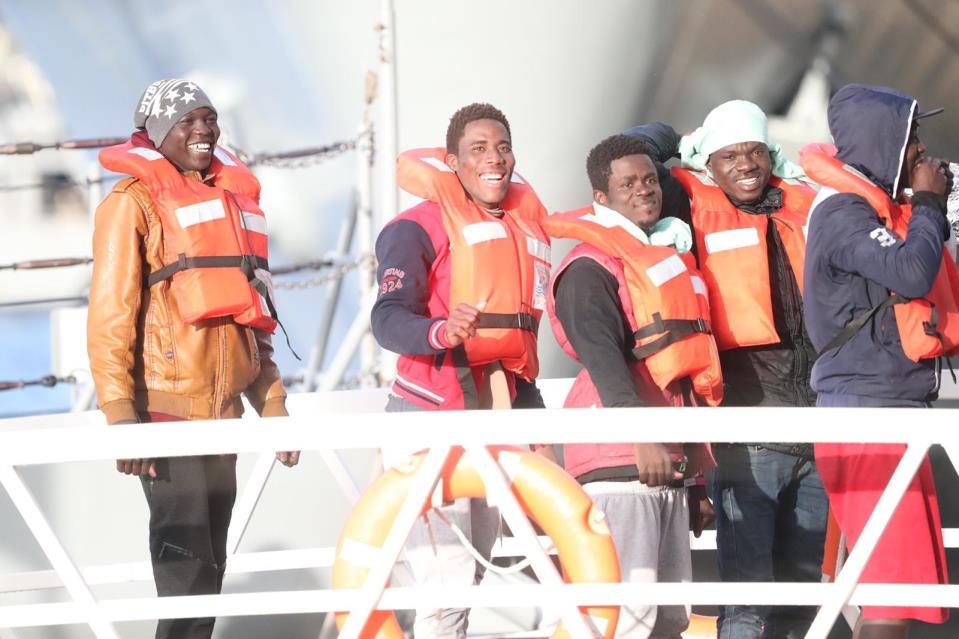
The PM said that Malta stood firm on the issue, maintaining that it was legally responsible for the rescue of the 249 migrants who were in the Maltese SAR zone, while it was not responsible for the other 49.
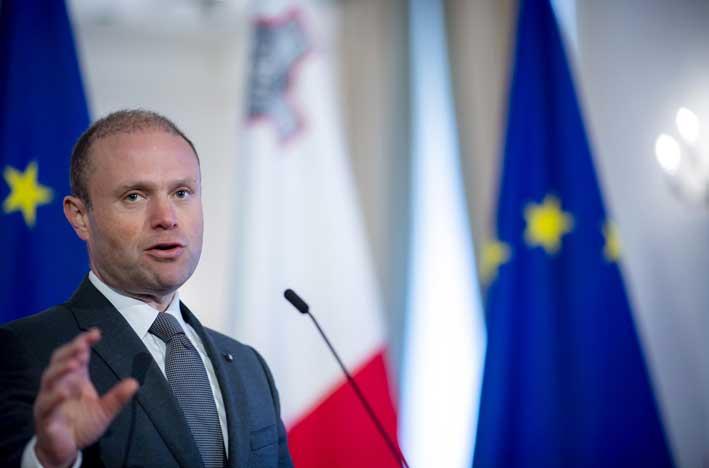
Muscat said that soon after the transfer of the migrants onto the AFM vessels is completed, the two NGO vessels were to leave Maltese territorial waters and will not be allowed to dock in Maltese ports.
The migrants have been stranded at sea on Sea Watch 3 and Prof Albrecht Penck for 18 days.
Malta argued that the migrants were picked up by the NGO vessels outside its jurisdiction, and Malta was therefore not legally responsible. Neither was it the nearest port of call, PM Muscat said. The European Commission agreed with this point of principle put forward by Malta.
In its arguments with the EU, Malta also insisted that when it was legally bound to intervene, its Armed Forces had rescued 249 migrants between Christmas and the New Year. These migrants were rescued in Maltese SAR zone.
Malta argued, the PM said, that it does not make sense that a solution is found for the 49 stranded migrants, while forgetting the other 249. This would send the wrong signal politically, legally and morally, Muscat said.
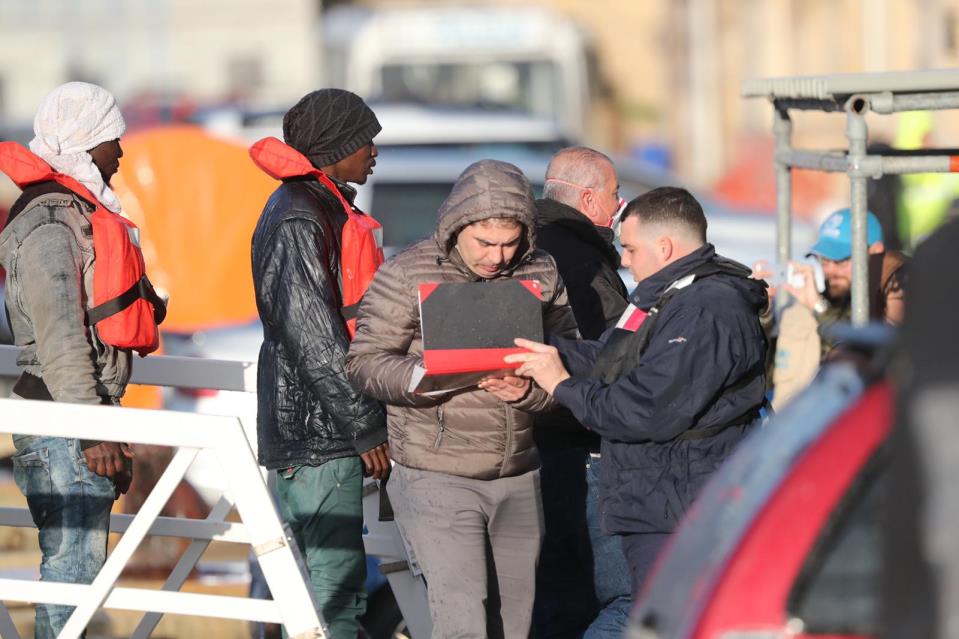
In this respect, 131 migrants from the 249 will be relocated to other European countries. The EU will be sending experts to facilitate an expedient return after due process of a further 44 Bangladeshi nationals who were part of the 249 migrants saved by the AFM. Malta will be taking the remaining 74 migrants.
Over the past days there have been several calls made by various NGOs for the 49 stranded migrants to be allowed in on humanitarian grounds. But the Maltese government stood firm on its legal obligations, and it was only after a solution was found via EU structures that a decision was taken to allow the migrants on Maltese land.
The Prime Minister was asked by The Malta Independent whether the time has come to push for a more permanent form of solidarity, rather than just ad-hoc agreements. He was also asked whether he intends to push for migration to be discussed in the next EU Council meeting and if yes, what kind of measures would he take, whether he would consider using a veto.
"I think it is obvious that we need something more structured and long-term, however right now, I think it would be delusional to think that there is the political climate for this to happen. It will take more time, and we will need to take into consideration the political realities of many countries, but we will not stop striving for this to happen. From a more regional perspective, I still think Malta and Italy are partners, and we face the same issues. We are on the same side of the story. Maybe right now the narrative on the two countries is very different, but at the end of the day we remain partners, and I think we share the same goals."
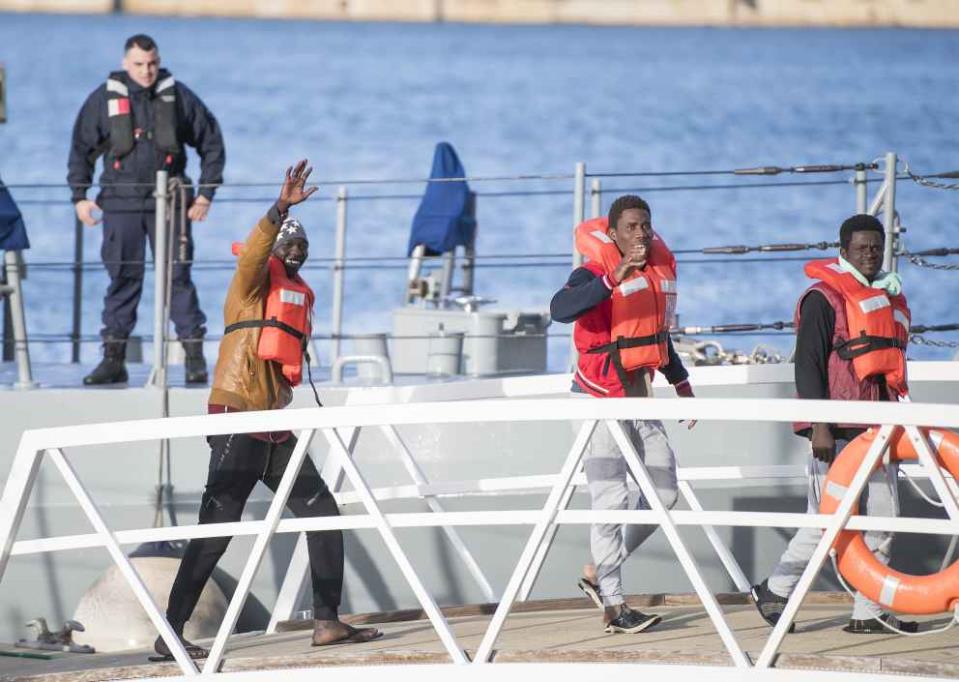
Asked by the press whether he feels this ad-hoc agreement creates precedent, and whether the assurances given by the EU countries were given to the Commission or Malta, Muscat said that Malta has been given assurances that this situation will not create a precedent. "It is obvious that in such cases there are people who were put in a bureaucratic trap, which was not of our making. I am not pointing fingers at who is to blame on this, but it is definitely not their fault and not ours. At the end of the day someone needs to bite the bullet and at the end of the day we decided that we cannot play around with people's lives. Having said that we don't have any real ideological concern on this. It is not a case of where we are saying our ports are close. We were saying we were doing our job and others should do theirs. There were circumstances where some did not do their job, and a decision needed to be taken."
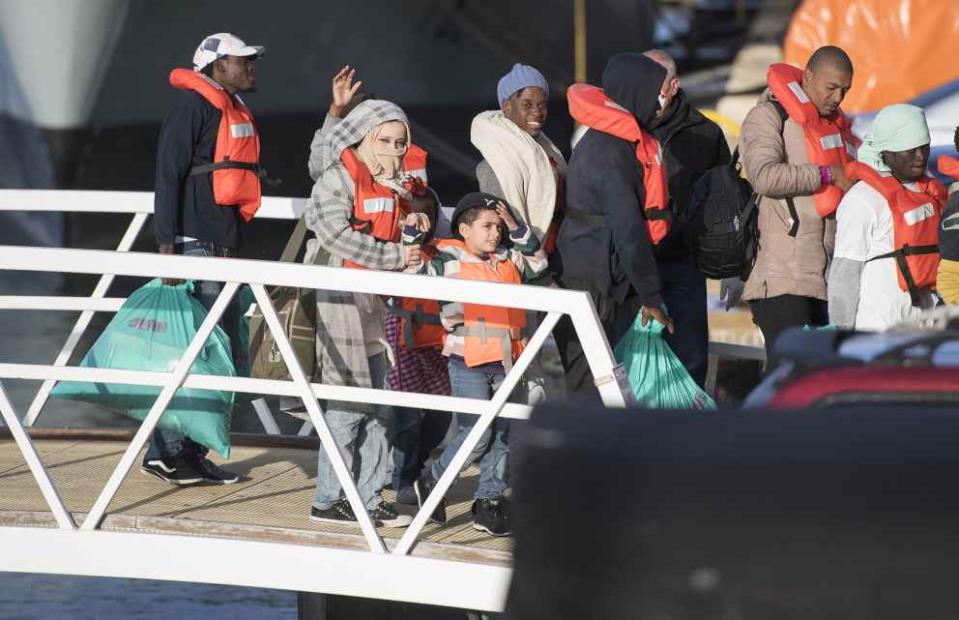
"I thought it was very important for the EU not only to step in to solve this issue. Our point was that this was a situation created by a standoff, and Europe is showing some form of solidarity since this standoff was created. What about those who do our job all the time and those rescue people? What sort of solidarity was shown? That argument was understood and yesterday evening the member states taking part stepped up their commitment which for us was a very important political signal."
Turning to the pledges, including that of Italy, he said that the Commission personally informed him that the member states sent in their pledges in writing.
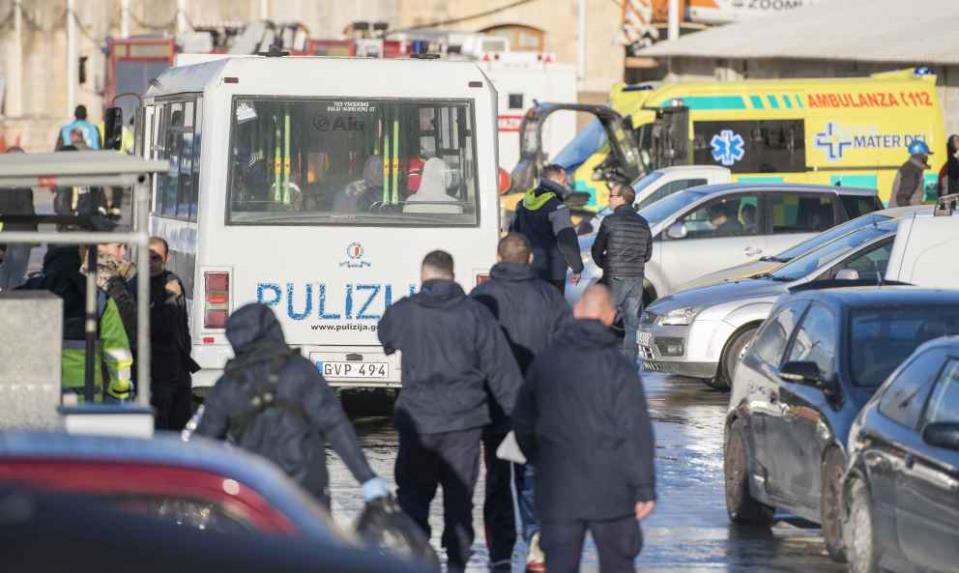
Turning to Libya, he said that Libyan commitment has increased exponentially from a year ago, thanks to help from the EU and the Italian government. "If the EU is helping the Libyan Coast Guard setup and function, and if it is functioning, we need to let them do their job. It is not a race of who comes first. It is a sovereign state, yes with its problems. But if they are coordinating the rescue they should be allowed to. It is not on that organisations think they can decide the rtules for themselves. Member States are held accountable to international rules and NGOs should also be held accountable to proper rules."
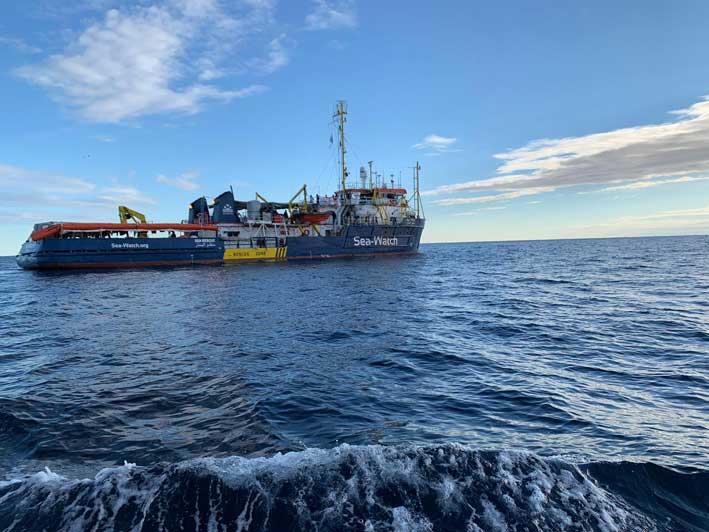
He was asked if the 49 migrants were made to wait outside of Malta while Malta found agreement for the other 249 migrants in Malta, and whether he is implying NGOs are creating problems. "I'm saying that member states and NGOs need to abide by the rules. Member states cannot refuse entry or rescue to people in their area of responsibility, On the other hand NGOs need to obey the orders of the competent authorities. If one of the two goes amiss, then we will be inconsiderable problems in the next few months."
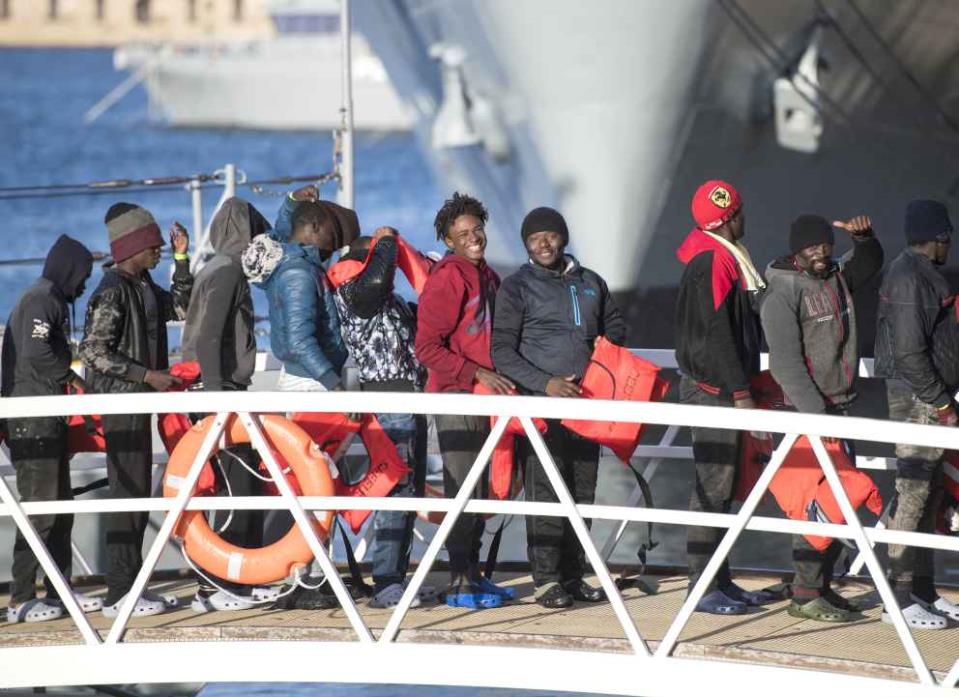
"With reference to the 49 migrants, to be blunt, nobody asked the two ships to come to Malta. They were not next to Malta when the rescue took place, but were near Libya. If one argues Libya is not a safe place, they were closer to Tunisia and Italy, definitely not in the Maltese zone of competence. It is unfair to state that someone was made to state when nobody was asked to come. Secondly, It is not a free for all, there are rules and as a PM I cannot be expected to say yes to everything all the time. There are clear rules and from our side we wanted a clear political sign that our adherence to the rules was appreciated. If you want to say that they were made to wait until we reached a solution then yes. But at the end of the day we did not create the problem ourselves."
Asked if legal action will be taken against the NGOs, he said that Malta's choice was for the transfer to take place in Maltese waters and that the two vessels will be asked to leave immediately.
Photos: Domenic Aquilina and Rene Rossignaud